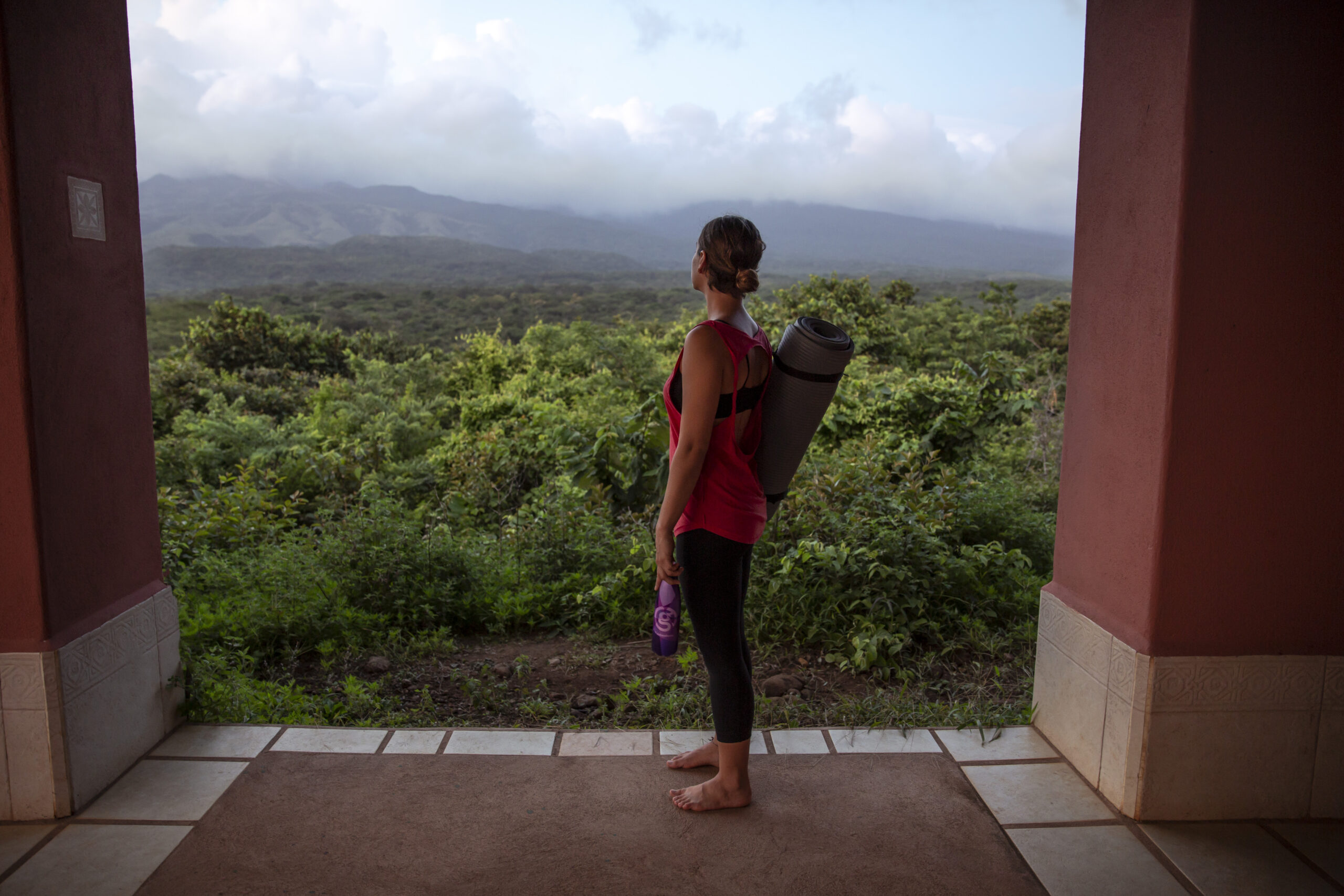After experiencing high levels of stress throughout her career, Marisa Garau shares her three-step mindfulness plan to equip yourself against stress.
Words Marisa Garau
Work stress is quickly becoming a standard part of our lives. In 2016 65 per cent of Kiwis reported that they experience stress at work on a daily basis. Stress is highly undermining and causes emotional and physical disorders, such as anxiety, depression and a failing immune system. But by bringing mindfulness into your everyday life, you can harness yourself against the effects of stress, and get back into a more balanced, calm and focused state of mind, both on the work floor and at home.
When I was a young copywriter and worked in the testosterone-driven universe of Amsterdam ad agencies, I often found myself in the toilet crying. Unable to cope with the stress that came with review sessions slashing my proposals, killing deadlines, work weeks of 60-plus hours and the toxic dynamics among my overly ambitious colleagues, I locked myself in the toilet to sob silently, desperately trying to calm down my overburdened nerves.
I struggled on until the age of 37 when severe depression and burnout forced me to give up on my career. I was exhausted. Even though I had worked extremely hard, every single night I had fallen into bed with the acid sensation of failure churning in my stomach. The more to-do lists I made, the more tasks seemed to pile up. I was always behind on schedules and never managed to get on top of my work. Discontentment, a nagging sense of incompetence and chronic stress had become my life companions, always whispering in my ear what a loser I was.
Only when I started to practice mindfulness, my life changed for the better. My books on mindfulness became international bestsellers and I developed an online platform to teach others about the incredibly sensible principles of mindfulness.
Now that I see how work stress and burnout are rapidly turning into a true epidemic, I would like to share my three-step mindfulness programme to help you cope with stress and create a more balanced life.
Create be-breaks
After every task you have completed, such as a phone call, sending an email, attending a meeting or finishing a report, you consciously take a be-break. A be-break is a short break, from 30 seconds to three minutes, in which you allow yourself some time to simply be, rather than do. In your be-break, you walk from your desk to the office kitchen, garden or balcony. Leave your phone on your desk (be brave, you can do it) and walk with full awareness. Pay attention to the walking process: feel your feet on the floor, how your muscles work to lift your one leg, how your body holds itself upright, how your head balances on your neck. Feel the expression on your face and soften it. When you have arrived, take a few deep breaths. Then say to yourself:
“I’m grateful that I am alive now.”
“I respect my body that is always at my service without complaining.”
“This is a precious moment that deserves my appreciation.”
Only after having enjoyed your be-break, you take on your next assignment.
Have attention for colleagues
One of the main causes of work stress is the energy of colleagues. If they are stressed, frustrated or cross, their mood infects everyone on the work floor. Responding negatively to such energy only adds oxygen to a smouldering fire, and you run the risk of getting burned. Today, try a different approach. Resolve to be calm and patient. Accept that your bad-tempered colleague has a hard time, whether you understand why or not. Understand that their impossible behaviour has nothing to do with you, but with some issue in their life. So pay some sincere attention to this colleague. Not only for them, but also for yourself. Resolving to be compassionate is a very powerful emotion that makes you feel good about yourself and reduces stress. Ask them if you can help them with any of their tasks, and then do it without discussion. Get them a cup of coffee or their favourite doughnut. Sit down and let them talk freely about the things that are troubling them. Reach out from the goodness of your heart and give them a helping hand. Sincere attention is a magical remedy and you’ll see that they’ll feel a lot better, clearing up the atmosphere in the office not just for you, but for your other colleagues, too.
Honour your energy
If, after a hard day’s work, you still feel unfulfilled because yet again you weren’t able to finish your all-important project, try a mindful approach. The next working day, promise yourself that everything that will come your way, will receive your full dedication. This day, you won’t judge and divide tasks into ‘good’ or ‘bad’. Today, every task will be worth your energy. So you start working on your pet project, but then a colleague comes into your office with a question. Instead of hitting him with your deadly glare, you consciously listen to their problem and help them find a solution. Take all the time you need, because you’ve resolved that all tasks, even those that you would normally label as ‘disruptions’, are now worth your full attention. After that, you have a be-break, and then you work on your project again. When the phone rings, talk to your client with a sense of calm since you know you have allowed yourself to see this as a ‘good’ task, not as a ‘bad’ one. Once the phone call is done, you work on your project again. And so you embrace all those distractions because today they are equally important to you. At the end of the day, appreciate this different way of working in which you have completed so many different tasks with full respect for your own human energy. You have consciously added a level of quality to all those different, seemingly unimportant tasks, which will leave you feeling content and fulfilled.
Final thoughts
When you have a busy life, practicing mindfulness in everything you do will help you fall into the stress trap less often, while consistently working on a better focus, emotional resilience and spiritual growth. As you can see, to be mindful you don’t need to meditate. By simply performing tasks with a different mindset, you can start creating a more balanced and more fulfilling life right away.
You’ll find more down-to-earth tips in my in-depth article about reducing work stress with mindfulness. Read it now
About the author
Marisa Garau is from Dutch-Sardinian descent and grew up in The Netherlands. She now lives in Mangawhai with her husband. Together they produce organic olive oil and run their Growing Mindfulness online platform, Luxon Spirited Scents, and MindSpa, an in-office mindfulness experience to reduce work stress, boost creativity and nurture holistic leadership.







